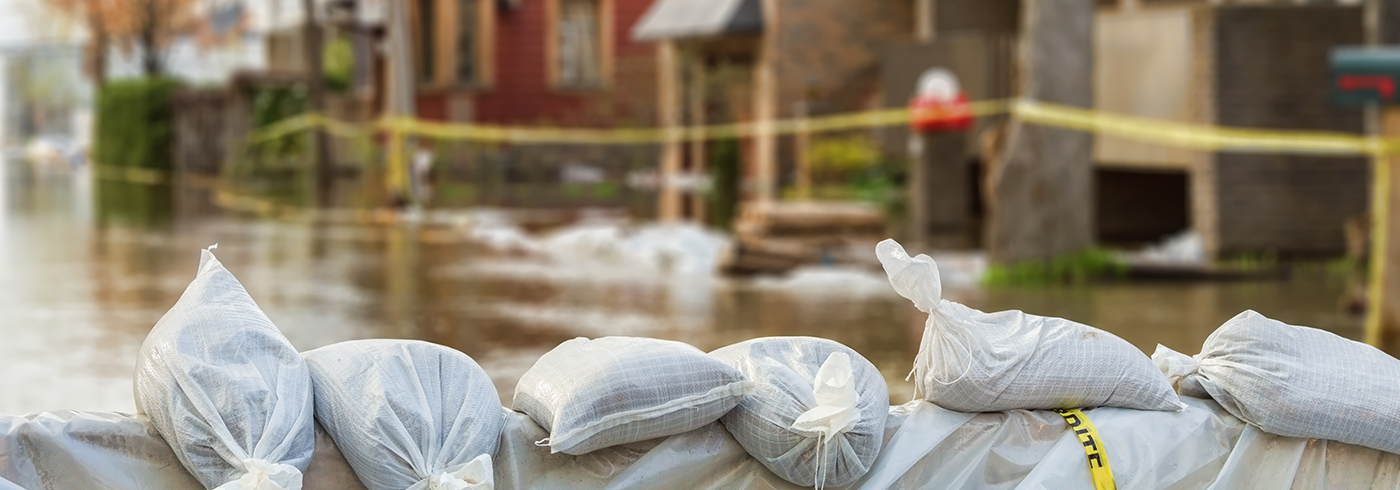Most flooding occurs when the amount of water in a river, stream or lake rises due to a lot of rain. If you live in an area that gets flooded often, you can take some steps to reduce flood-related health concerns.
Learn more about sewer back ups and reporting basement flooding.
|
Be prepared |
|
Now is a good time for you to prepare to take care of your own basic needs for at least 72 hours following a major disaster. Learn more about: For more information visit the Environment and Climate Change Canada website. |
|
Concerns with flood water |
|
Avoid direct contact with flood water, as it may contain harmful bacteria, viruses, parasites, chemicals and other foreign material. Flood water may also enter the plumbing lines in your home.
Note: If chemical contamination (e.g. pesticides, oil, gasoline, etc.) of your well water supply is suspected, do not boil your drinking water. Chemicals may be a danger in your well water. Contact an accredited laboratory to discuss your specific testing needs.
After a flood, the structure of your well may be damaged. Contact a certified well technician to inspect your well. For more information about private wells, visit our Private Wells page. |
|
Food safety and floods |
|
When returning to your home after a flood you may need to check the safety of food that was in your home. If the power was off, the foods you kept in the fridge and freezer may not be safe to eat. Follow these tips to ensure food safety:
Throw away food containers with screw-caps, snap-lids, soda pop bottle caps, twist caps, flip tops, and ones that snap-open as you cannot properly clean the outside of the container without affecting the food inside. Sealed cans that come in contact with flood or storm water can be cleaned by removing the label, washing the cans, and then dipping them in a mixture of bleach and water (half a teaspoon of chlorine per 1L water). Re-label cans to include expiration date. Throw away hazardous foods such as meats, poultry, fish, eggs and leftovers that were stored in a fridge without power for six hours or if food has an internal temperature greater than 4°C. Food inside a full freezer should be safe for up to 48 hours after a power failure if the doors have been closed. Food inside a half full freezer should be safe for 24 hours after a power failure if the doors have been closed. Thawed food that has ice crystals or is 4°C or below can be refrozen or cooked. Do not use water that has been affected with flood or storm water to wash dishes, brush your teeth, wash and prepare food, wash your hands, make ice or make baby formula. Learn more about food safety during a power outage. Learn about what you need to know when the power goes out unexpectedly and keeping food safe during an emergency. |
|
Flooding and drinking water |
|
If the water in your well was affected by flooding:
Find additional information from the Ontario Ministry of the Environment, Conservation and Parks. Is your water from a privately owned well? Water sample bottles are available for pick-up and drop-off at various locations. Durham Region's municipal water supply is treated and tested, and meets the requirements of the Ontario Ministry of the Environment, Conservation and Parks. If this supply ever became unsafe to use, customers would be notified through radio, TV, internet, social media and any other available channels. |
|
Sewage systems and floods |
|
If your private sewage system floods, it can be very dangerous for you and your family. It may result in sewage backing up into your home or the drinking water supply being unsafe. Before flooding
During flooding
After flooding
Learn more about sewer back ups and reporting basement flooding. |
|
Flooding and other dangers |
|
After the flood is over, dangers could still be around your home and property. Here are some things keep in mind as you recover from a flood:
|
|
Cleaning up after a flood |
|
If you have a lot of damage from a flood which involves significant cleaning, we recommend you contact a professional for help. If there is not much damage and your septic system was not affected, we recommend you follow these cleaning instructions. First assemble equipment and supplies such as:
Then follow these steps:
Clean and dry out your home:
How to clean surfaces:
After cleaning, you'll want to make sure you ventilate or dehumidify your home until is it completely dry. Rapid drying is important to prevent mould growth. |
| Resources |
Contact Us





